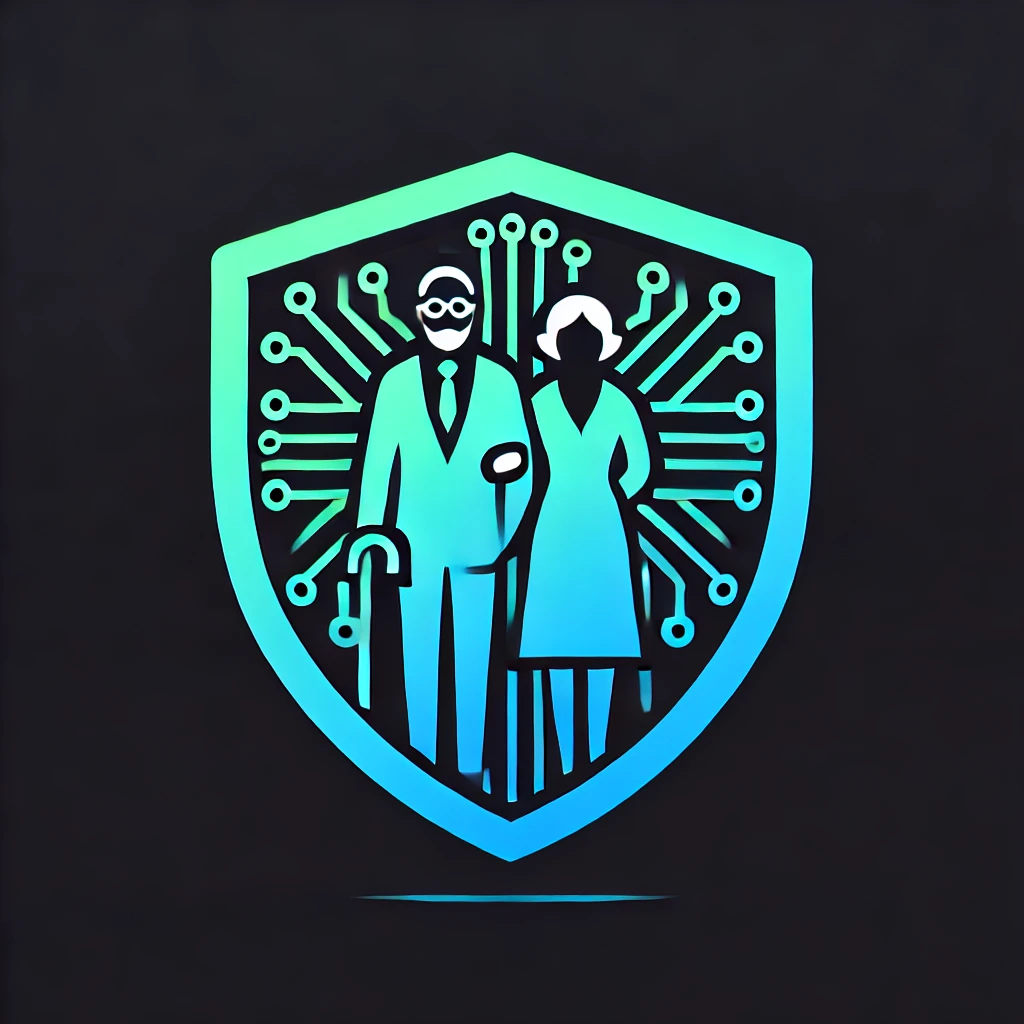In today’s increasingly digital world, seniors have become prime targets for cybercriminals who exploit their unfamiliarity with technology and their trusting nature. As online scams grow more sophisticated, it’s crucial for older adults and their loved ones to recognize the warning signs. This guide will help you identify common online scams targeting seniors and provide practical tips for protection.
Common Red Flags of Online Scams
1. Urgent Action Required
Scammers often create a false sense of urgency to prevent you from thinking clearly. Any message claiming “immediate action required” or threatening negative consequences if you don’t respond quickly should raise suspicion.
2. Too Good to Be True Offers
Free vacations, miracle health cures, enormous lottery winnings, or investment opportunities promising extraordinary returns with no risk are classic scam indicators. Remember: if it sounds too good to be true, it probably is.
3. Requesting Unusual Payment Methods
Be extremely cautious when someone asks for payment via gift cards, wire transfers, cryptocurrency, or money orders. These payment methods are difficult to trace and nearly impossible to recover once sent.
4. Suspicious Contact Information
Legitimate organizations have professional email addresses and contact information. Be wary of communications from personal email addresses, emails with numerous misspellings, or phone numbers that don’t match official listings.
5. Requests for Personal Information
Reputable organizations will never ask for your full Social Security number, complete banking details, or passwords via email or unsolicited phone calls. These requests are almost always scams.
Most Common Scams Targeting Seniors
Government Impersonation Scams
How to identify: Someone claims to be from Social Security, Medicare, or the IRS, often threatening legal action or benefit suspension unless you provide personal information or payment immediately.
Protection tip: Government agencies rarely call individuals unexpectedly and never demand immediate payment by phone. Always verify by calling the agency directly using their official number.
Tech Support Scams
How to identify: Pop-up warnings about viruses or phone calls claiming to be from Microsoft, Apple, or other tech companies about “problems” with your computer.
Protection tip: Legitimate tech companies don’t monitor your device or contact you proactively about issues. Hang up and contact the company directly through their official website if concerned.
Grandparent Scams
How to identify: A caller claims to be your grandchild (or representing them) in an emergency situation requiring immediate financial help. They often beg you not to tell their parents.
Protection tip: Always verify the emergency by contacting the grandchild or their parents directly using numbers you know are valid, regardless of how urgent the situation sounds.
Romance Scams
How to identify: Someone you’ve met online professes strong feelings quickly, has elaborate stories explaining why you can’t meet in person, and eventually asks for financial assistance.
Protection tip: Be skeptical of romantic interests who can never video chat or meet in person. Never send money to someone you haven’t met face-to-face, no matter how convincing their story.
Fake Online Stores
How to identify: Websites offering extreme discounts with limited contact information, poor design, and strange URLs. Often they sell high-demand items at suspiciously low prices.
Protection tip: Research unfamiliar websites before purchasing. Look for reviews, verify their physical address, and always pay with credit cards that offer fraud protection.
Phishing Emails
How to identify: Emails claiming to be from banks, credit card companies, or online retailers that ask you to “verify” account information by clicking a link.
Protection tip: Don’t click links in unexpected emails. Instead, go directly to the company’s website by typing their web address in your browser, or call them using the number on your statement or card.
Advanced Protection Strategies
Create a “Scam Check” System
Before responding to any unexpected request for information or money, implement a personal verification system:
- Wait 24 hours before taking action
- Discuss the situation with a trusted family member or friend
- Contact the organization directly through official channels
- Google the exact scenario to see if others have reported it as a scam
Digital Security Habits
- Use strong, unique passwords for each online account
- Enable two-factor authentication whenever possible
- Keep all devices and software updated
- Install reputable antivirus and anti-malware software
- Be cautious about what you share on social media
- Consider using a password manager to generate and store complex passwords
Financial Protection Steps
- Check credit reports regularly for unauthorized accounts
- Consider placing a freeze on your credit report
- Set up alerts on financial accounts for unusual activity
- Use credit cards rather than debit cards for online purchases
- Consider creating separate email accounts for financial matters
Community Resources
Many communities offer free digital literacy programs specifically designed for seniors. Local libraries, senior centers, and community colleges frequently host workshops on identifying online scams and using technology safely.
What To Do If You’ve Been Scammed
If you suspect you’ve fallen victim to a scam:
- Contact your financial institutions immediately
- Change passwords for all accounts
- Report the scam to local law enforcement
- File a complaint with the FBI’s Internet Crime Complaint Center (IC3)
- Contact the Federal Trade Commission at ReportFraud.ftc.gov
- Place a fraud alert on your credit reports
Remember that falling for a scam can happen to anyone, regardless of age or background. Scammers are professionals who have refined their techniques to be highly convincing. By staying informed about current scam tactics and maintaining healthy skepticism toward unsolicited contacts, you can significantly reduce your risk of becoming a victim.
Stay vigilant, trust your instincts, and remember that no legitimate organization will ever pressure you to make immediate decisions involving your money or personal information.



Leave a Reply